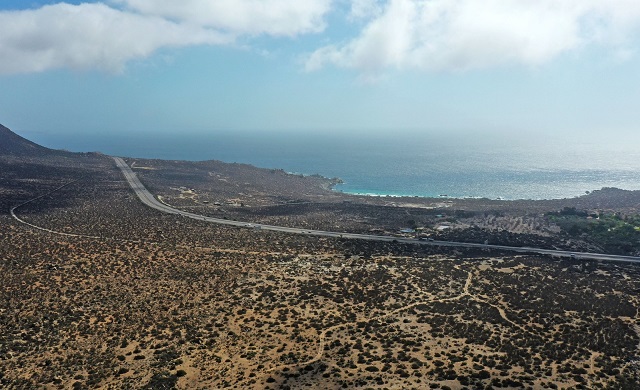Statement from the Public Works Ministry of Chile
This press release was published in English using an automatic translation system
On Friday, 14th of November, the economic offers for the “Desalination Plant Concession for the Coquimbo Region” were unveiled. Among those presenting was Sacyr Agua SL, which put forth a rather tempting proposal for the State. The PDAM Mamanchay Consortium, including COX WATER SL and COINTER CHILE SA, also submitted a bid.
The desalination plant marks a significant pledge by President Gabriel Boric’s government to secure water for the inhabitants of Coquimbo and La Serena. As an essential and symbolic endeavor, it’s the first of its kind executed in Chile through a public-private partnership. This project aims to tackle the pressing water crisis with state-of-the-art infrastructure, as pointed out by Jessica López, the Minister of Public Works.
The venture foresees an investment of around £257 million (UF 8,195,000) and will operate for 21 years from its initial commissioning. The awarding of the project is anticipated in the first quarter of 2026, based on the top score as per tender criteria presented.
Meanwhile, Undersecretary Danilo Núñez, present during the financial proposal opening, remarked that after a thorough analysis, they aim to grant the project by early 2026. This development is eagerly awaited by the communities in Coquimbo.
Claudio Soto, the acting Director General of Concessions, expressed pride in the institution’s efforts. He expects the desalination plant to be operational within 3.5 to 4 years, thereby fortifying water availability in this drought-prone region.
Located in Panul Cove, the project encompasses the design, construction, and operation of a seawater desalination plant. Its total capacity stands at 1,200 litres per second (l/s), beginning with an initial operation of 800 l/s, for human consumption and other uses.
The initiative involves maritime works, a reverse osmosis plant, and an 18.7-kilometre distribution pipeline to tanks with an 8,000 m³ total capacity.
The construction phase will commence once the Environmental Qualification Resolution is secured among other stipulations. It is expected to create approximately 1,000 jobs per month during this period.
For more information on water conservation in Chile, you may want to visit Water Resources in Chile.






